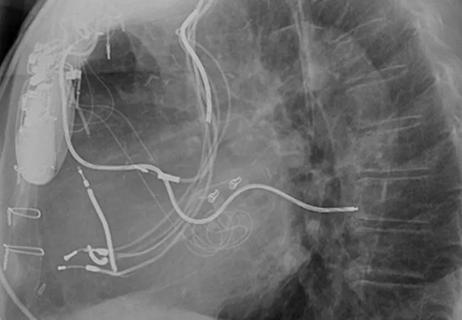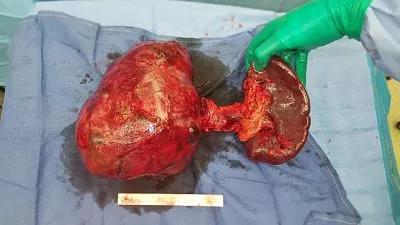Category debug info: client: {"assets":{},"datasets":{},"live":{},"projects":{},"users":{},"observable":{"assets":{},"datasets":{},"live":{},"projects":{},"users":{}}} Now: 1770906074873 Cache Key: cqdDataBySlug:global-medicine fetchCache[cqdDataBySlug:global-medicine].expirationTime: falsey fetchCache[cqdDataBySlug:global-medicine]. seconds remaining: falsey All fetchCache expiration times: -- Key: cqdNotFoundPage, seconds remaining: 1547 -- Key: cqdDataBySlug:new-studies-reinforce-benefits-of-combination-treatment-for-urothelial-carcinoma, seconds remaining: -20879 -- Key: cqdDataBySlug:research-cancer, seconds remaining: -19862 -- Key: cqdPostsByCategory:cqd-migrated-category-2551,2,10, seconds remaining: -19301 -- Key: cqdDataBySlug:considerations-for-contraceptive-care-for-during-and-after-cancer, seconds remaining: -16011 -- Key: cqdDataBySlug:up-to-94-accuracy-at-predicting-wound-complications-after-sarcoma-resection, seconds remaining: -14249 -- Key: cqdDataBySlug:crucial-concepts-in-managing-patients-with-metastatic-bone-disease, seconds remaining: -13443 -- Key: cqdDataBySlug:3d-printed-pelvis-implant-restores-function-after-sarcoma-resection, seconds remaining: -13492 -- Key: cqdDataBySlug:managing-soft-tissue-sarcoma-in-adults, seconds remaining: -11373 -- Key: cqdDataBySlug:understanding-little-league-elbow-causes-risks-and-prevention, seconds remaining: -10239 -- Key: cqdDataBySlug:orthopaedics, seconds remaining: -8976 -- Key: cqdPostsByCategory:cqd-migrated-category-2528,3,10, seconds remaining: -8376 -- Key: cqdDataBySlug:which-patients-with-scoliosis-are-best-for-vertebral-body-tethering, seconds remaining: -6936 -- Key: cqdDataBySlug:arthritis, seconds remaining: -6292 -- Key: cqdPostsByCategory:cqd-migrated-category-2595,1,10, seconds remaining: -5725 -- Key: cqdDataBySlug:5-myths-about-esports-what-our-esports-medicine-team-wants-medical-professionals-to-know, seconds remaining: -4724 -- Key: cqdDataBySlug:research-orthopaedics, seconds remaining: -3765 -- Key: cqdPostsByCategory:cqd-migrated-category-2600,1,10, seconds remaining: -3108 -- Key: cqdDataBySlug:case-study-joint-pain-angioedema-confusing-rash, seconds remaining: -3331 -- Key: cqdDataBySlug:hydrogel-with-nanoparticles-reduces-bacterial-biofilm-in-model-of-periprosthetic-joint-infection, seconds remaining: -2700 -- Key: cqdDataBySlug:7-insights-for-orthopaedic-surgeons-building-a-research-program, seconds remaining: 1547 -- Key: cqdDataBySlug:when-the-question-is-can-you-fix-me-doc, seconds remaining: 2392 -- Key: cqdDataBySlug:pain-management, seconds remaining: 3121 -- Key: cqdPostsByCategory:cqd-migrated-category-2529,1,10, seconds remaining: 3677 -- Key: cqdDataBySlug:xiaojuan-li-phd-named-inaugural-bonutti-family-endowed-chair-for-musculoskeletal-research, seconds remaining: 4804 -- Key: cqdDataBySlug:innovations-in-musculoskeletal-appointment-scheduling-orthopaedic-informatics-team-improves-access-to-care, seconds remaining: 5812 conditions: -- false, -- NA, -- NA, -- NA -- false Cache miss for key cqdDataBySlug:global-medicine - retrieving from Sanity CCCache.dataFetchCount: 506 Cache cleanup seconds remaining: 5751
Advertisement
Advertisement
Development leader harnesses shared purpose to fuel meaningful giving
A multi-pronged strategy for tackling cancer access problems
State-of-the-art facility expands global care, professional opportunities
Nursing leaders share knowledge, ideas and experience
Advertisement
Cleveland Clinic is a non-profit academic medical center. Advertising on our site helps support our mission. We do not endorse non-Cleveland Clinic products or services. Policy
Freely accessible LEADconnection.org is a one-stop shop for advice and more
Cleveland Clinic’s new Global Director of Vaccine Development outlines plans, priorities
Reforms aim to address escalating healthcare spending with new global care-delivery strategies
Health system expands global network of physicians and specialists
Seven-pound tumor requires complex, multidisciplinary care
Practice guidelines and key considerations
Rendered: Thu Feb 12 2026 14:21:15 GMT+0000 (Coordinated Universal Time)
9500 Euclid Avenue, Cleveland, Ohio 44195 |
800.223.2273 | ©
2026 Cleveland Clinic. All Rights Reserved.









